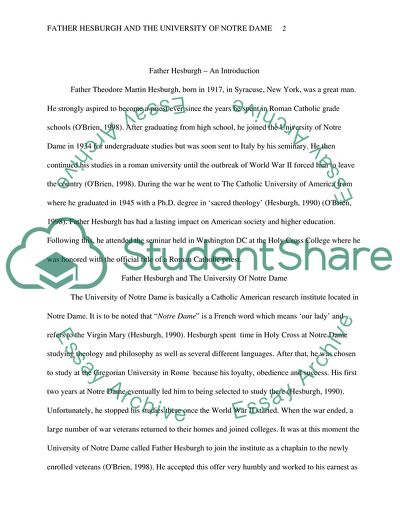Cite this document
(“Father Hesburghs Influence at the University of Notre Dame Research Paper”, n.d.)
Father Hesburghs Influence at the University of Notre Dame Research Paper. Retrieved from https://studentshare.org/education/1782820-person-or-place-profile-p3-research-paper-and-presentation-father-theodore-hesburghuniversity-of-notre-dame
Father Hesburghs Influence at the University of Notre Dame Research Paper. Retrieved from https://studentshare.org/education/1782820-person-or-place-profile-p3-research-paper-and-presentation-father-theodore-hesburghuniversity-of-notre-dame
(Father Hesburghs Influence at the University of Notre Dame Research Paper)
Father Hesburghs Influence at the University of Notre Dame Research Paper. https://studentshare.org/education/1782820-person-or-place-profile-p3-research-paper-and-presentation-father-theodore-hesburghuniversity-of-notre-dame.
Father Hesburghs Influence at the University of Notre Dame Research Paper. https://studentshare.org/education/1782820-person-or-place-profile-p3-research-paper-and-presentation-father-theodore-hesburghuniversity-of-notre-dame.
“Father Hesburghs Influence at the University of Notre Dame Research Paper”, n.d. https://studentshare.org/education/1782820-person-or-place-profile-p3-research-paper-and-presentation-father-theodore-hesburghuniversity-of-notre-dame.


